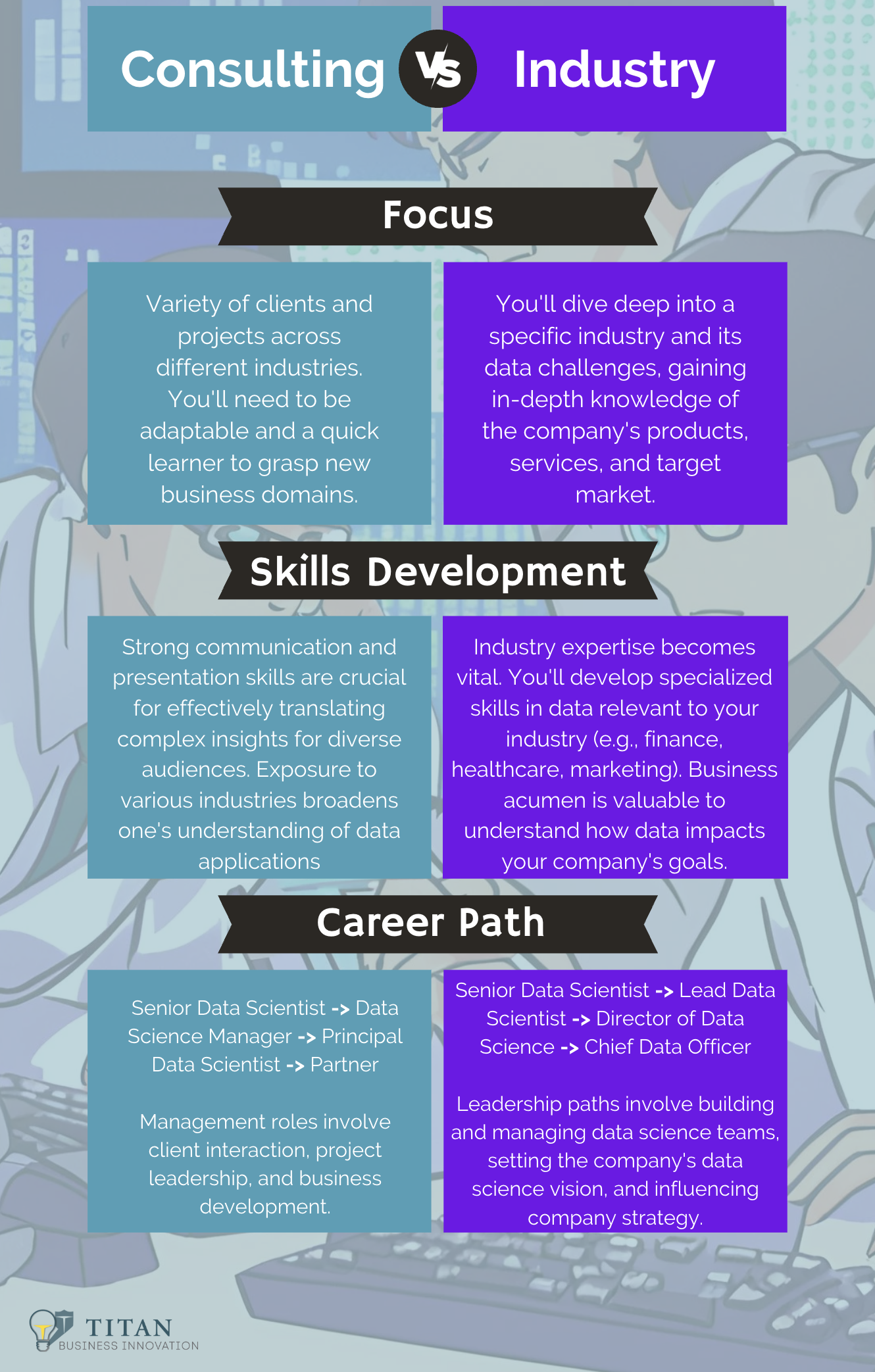1. Lack of Visibility in the Organization
One significant challenge facing data scientists is visibility. Data science work, inherently technical and complex, often goes on behind the scenes. Senior leadership may need to fully understand the process or the effort involved in analyzing datasets and modelling. As a result, the impact of a data scientist can be less apparent compared to roles with more direct interaction with leadership or more obvious ties to revenue streams.
Strategy: To increase visibility, data scientists should focus on communicating their results more effectively. This can involve developing storytelling skills to translate complex data findings into clear, impactful narratives that resonate with non-technical stakeholders. Regular presentations to management and cross-departmental collaborations highlight the value of data science projects. Seeking opportunities for cross-departmental projects can enhance visibility and demonstrate the wide-reaching impact of your data skills.
2. Unclear Career Pathways
The career path for data scientists can be ambiguous compared to more established professions. Organizations may have yet to define advancement tracks for data roles, making it unclear how a data scientist can rise to higher levels of responsibility.
Strategy: Data scientists should initiate discussions with HR and their direct managers to seek clarity on their career progression. Setting up a clear set of goals and a timeline for achieving them can help both the employee and the employer focus on growth. Engaging in mentorship, either as a mentor or a mentee, can also provide insights and opportunities for professional development. Understanding the potential career paths in consulting versus industry can also guide your decisions and aspirations.
Potential Career Paths: Consulting vs. Industry
The career path for a data scientist can differ depending on whether you choose to work in a consulting company or industry side. Consulting firms lean towards broader technical skills and communication as well as offering exposure to a wider range of projects, while industry allows for deeper technical expertise and business domain knowledge and provides the chance to become an expert in a specific area. Here’s a breakdown of the possibilities in each:
3. Insufficient Business Impact
Promotions are often tied to an individual’s impact on the business. For data scientists, the challenge is that the outcomes of their work—while valuable—might not directly correlate with business metrics like revenue or cost savings.
Strategy: To address this, data scientists must align their projects more closely with business goals. This might involve prioritizing projects with a clear business impact or re-framing existing projects to highlight their contributions to business outcomes better. Learning about other aspects of the business can also provide opportunities to identify new, impactful ways to apply data science.
4. Skill Gaps
The field of data science is rapidly evolving, and staying current is crucial. A lack of up-to-date technical skills, soft skills, or domain-specific knowledge can hinder a data scientist’s ability to be promoted.
Strategy: Continuous learning is critical. This can include taking online courses, attending workshops, and staying updated with the latest research and tools in the field. Furthermore, developing soft skills, such as leadership and management abilities, can prepare data scientists for roles with greater responsibility.
5. Organizational Structure and Bias
Sometimes, the barrier to promotion is not about skill or impact but organizational dynamics or unconscious bias. This could be due to factors such as company culture, internal politics, or lack of diversity and inclusion.
Strategy: Navigating this challenge can be difficult but begins with building a strong network within and outside the organization. Networking can provide alternative paths to influence, power, and support from mentors who can advocate on your behalf. Addressing bias directly also involves promoting a more inclusive culture through active participation in organizational initiatives.

Understanding and addressing these potential barriers are crucial steps for data scientists to advance their careers. By improving visibility, aligning closely with business objectives, actively managing their career paths, continuously upgrading their skills, and navigating organizational dynamics, data scientists can enhance their prospects for promotion and achieve their professional goals.
Kenji changed his approach, enhancing his ability to communicate his goals and focusing on delivering more tangible value to his company. As a result, he was recently promoted to lead a team of three data scientists. While changing companies can sometimes be beneficial for career progression, the first step should be to improve your current situation within your current role. Change takes time, but with a clear plan using the strategies outlined above, you can achieve greater job satisfaction and reach your career goals.

